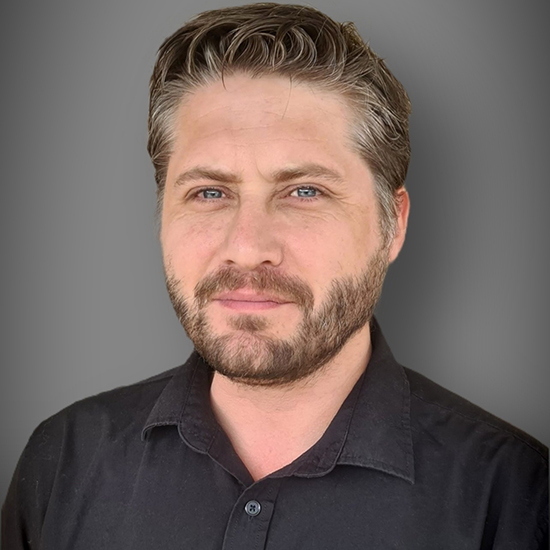Five minutes with… Albert Atkin
Recently appointed as the Faculty’s Associate Dean Curriculum and Learning (Teaching and Leadership), Dr Albert Atkin joined the Department of Philosophy in 2007 and has a particular research interest in the philosophy or race, including the language of racism, and racist political rhetoric.
 1. The PHIL1037 Critical Thinking unit is particularly popular, what is it about this class that resonates so strongly with students?
1. The PHIL1037 Critical Thinking unit is particularly popular, what is it about this class that resonates so strongly with students?
The course asks students to examine themselves and their own attitude and understanding of the world. Critical Thinking courses tend to be about teaching simple logic or argument forms. Our course looks at a much broader range of issues than that – misinformation, bias, how to work towards a settled agreement from different starting points, and so on – but crucial to this is understanding that we all have gaps in our knowledge, and sometimes quite radical differences in how we view the world around us.
2. What you need to do your best work
When it comes to writing, I would say strong coffee and repetitive noise. Coffee makes me feel like I’m a grown-up writer or something. My favourite repetitive noise is Steve Reich’s Music for Eighteen Musicians. If I listen to that when I write, I can really get into a kind of flow.
3. The most impressive/useful/advanced piece of equipment you use in your work
Not advanced, or impressive, but useful. I like to write on an Alphasmart Neo 2. It’s basically a keyboard powered by a couple of AA batteries, which saves every key stroke to a small buffer file. Its screen only lets you see a couple of lines of text. They were used quite a lot in schools in the US, particular for helping neuro-diverse kids stay focused on simple tasks. I find it allows me to stay focused just on writing and nothing else. No email, no fact checking, no re-reading what I’ve just written, no on-the-fly editing. Just writing. I find that is useful for getting stuff done, especially when combined with coffee and repetitive noise.
4. What people always ask you when they find out what you do for living?
I’m a philosopher. The most common response is an awkward “oh” and change of subject. I’ve also been asked what my “favourite sayings” are. However, the best question I’ve ever been asked by someone finding out I’m an academic philosopher was: “A philosopher! Wow! So…if you were me, what would you ask you?”
5. Something you’ve read recently that has had an impact on you
A book by the historian E.P Thompson called Whigs and Hunters: The Origin of the Black Act. It’s a pretty old book, published in the 1970s, but the political landscape it paints in 1700s England of the rural poor being brutalised in power grabs by rising political elites was something that I found personally and professionally impactful. I started reading it because it refers to laws that made wearing ‘black-face’ in Royal Forests punishable by death and I wondered if there was a racial dimension to this – I’m interested in the philosophy of race – there isn’t, but the stories are moving nonetheless.
6. The first person you go to for advice
It depends, probably my partner. She is very honest about things. It’s good to have someone who will give unvarnished truth. Sometimes.
7. Where you live
I live on the Central Coast. There’s quite a diverse bunch of people where I live, people are pretty friendly, its relaxed, there’s not much room for pretension.
8. A personal quality you value in others
That’s trickier than it seems. People have all kinds of qualities which in one person is endearing and valuable, but in another is downright infuriating. For example, my daughter is very stubborn, but it’s a quality that I really value in her. It’s part of what makes her so persistent. Stubbornness in my son though would fit so badly with his other characteristics – patient, kind, empathetic – that it would be hard to make sense of it. If I had to generalise a quality I value though, I do appreciate people who can laugh at themselves a little.
9. Something you’re trying to do differently in 2021
I feel like 2021 has been a bad year to experiment with doing things differently.
10. A moment you felt proud
At my undergraduate degree award ceremony. And not so much proud of myself, but of my mother. I was the first in my family to finish school, let alone go to university, and studying for a degree was a difficult experience for me, but also for my mother. She didn’t really understand what it was I was doing, what advice or support I needed, or what was going on, but that was never going to stop her from being there for me every step of the way. So, when I graduated, I was honestly incredibly proud of her because university can be hard if you are the first one to give a shot and I couldn’t have done it if she hadn’t have worked so hard to support me through something that was quite alien to her.